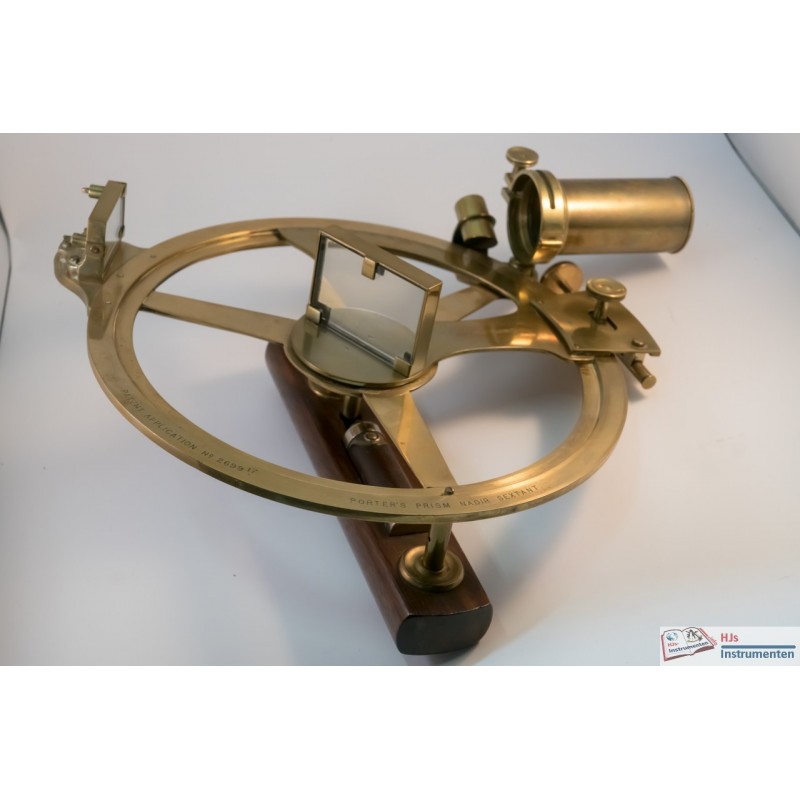













Cary Porters Prism Nadir sextant
This is a bit of a special instrument. It is a reflecting circle but with a twist. First of all, there are no shades so this must have been used for either surveying or for lunar distance observations. As some of the major parts are missing and no further information can be found on the internet, I have made an educated guess on how this instrument would have worked.
As far as I can tell there are two major parts missing. The first (and biggest) is the frontside of the telescope. As far as I can tell (from experimenting etc) is that there originally was a lens with a prismatic part. The telescope now focusses at a few centimetres from the (now) front lens. This distance is enough to bring the index into focus. Also, as the index is mirrored this would be logical. Then another lens would have to be placed before the current lens to create a focus at longer distances (possibly with a focus option?) to bring the objects into coincidence. Also missing is (probably) a small light to lighten the index scale beneath the telescope. This would indacte that the instrument was to be used for lunar distance observations although the telescope will make reading the scale in daylight hard as well (shadows).
All other parts, including the 'Ever ready' battery holder are present. The instrument is marked with a patent application number (2699) for 2017. No further information on the patent has been found (yet).
Any additional information and especially photographs or drawings of a complete instrument are welcome!
Data sheet